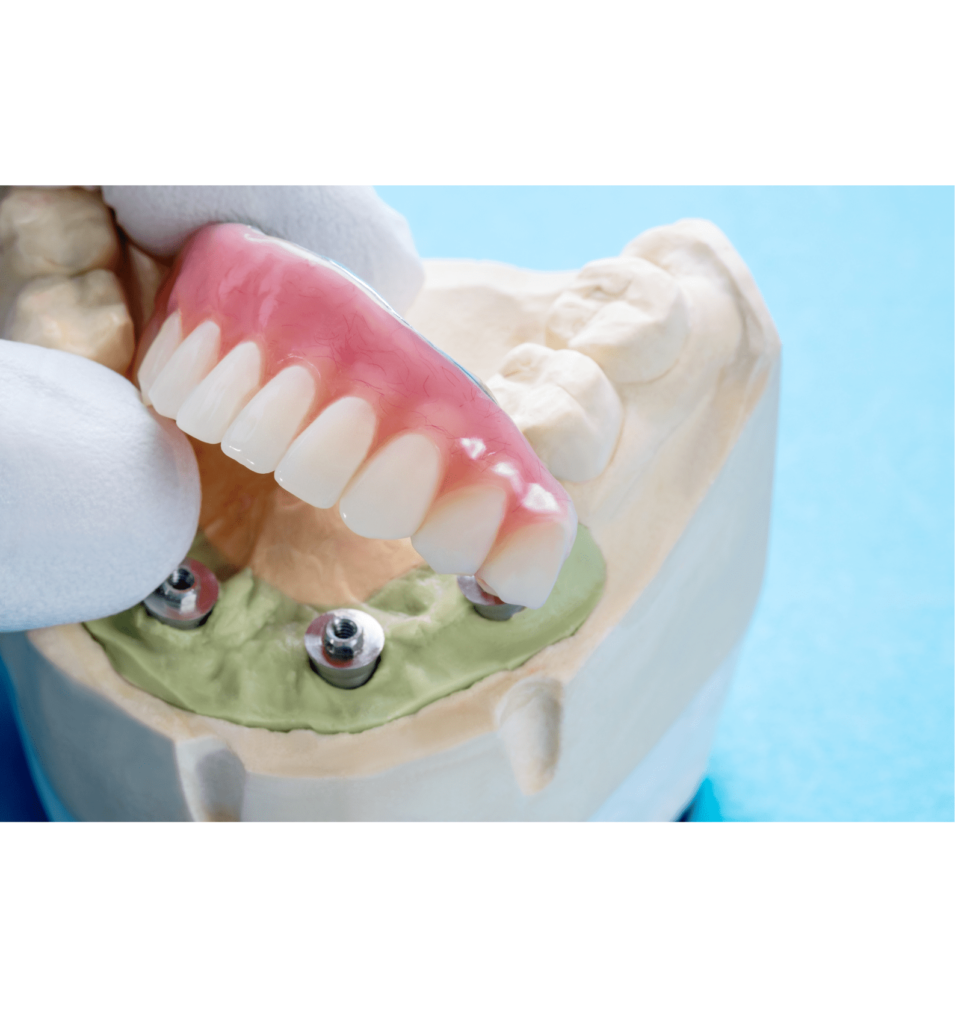Are You Asleep For Dental Implants?
You are not necessarily asleep for dental implants. During the procedure, you may receive local anesthesia to numb the area or sedation or general anesthesia to help you relax or remain unconscious.
There is a common misconception that the dentist always knocks you out during dental implant. But in reality, the approach to anesthesia varies and depends on several factors such as the complexity of the procedure and if bone grafting is involved.
What are the Different Types of Anesthesia for Dental Implants?
Following are the different types of anesthesia for dental implants:
Local Anesthesia:
Local anesthesia is the most common type used for dental implant surgeries. It involves injecting an anesthetic directly into the surgical site to numb the nerves and prevent painful sensations.
With local anesthesia, the patient remains awake and alert throughout the surgery but doesn’t feel any pain. This approach is suitable for most routine dental implant placements.
General Anesthesia:
Under general anesthesia, the patient is unconscious and unaware of the procedure. It is reserved for extensive implant surgeries or when multiple procedures are being performed simultaneously.
Patients opt to be asleep for dental implant surgery through the administration of general anesthesia. This allows the dentist or oral surgeon to perform the implantation while the patient is completely unaware and free from discomfort.
What is Sedation Dentistry?
Sedation dentistry is administered during dental procedures to help patients relax. The primary goal of sedation dentistry is to alleviate fear and anxiety, especially for individuals with dental phobia or those undergoing complex treatments.
Sedation for dental implants offers various levels of sedation to accommodate different patient needs and preferences. These include:
Minimal Sedation:
With minimal sedation, patients remain awake but feel relaxed during the dental implant procedure.
Moderate Sedation:
Moderate sedation is also known as conscious sedation. Patients may slur their words and have limited memory of the procedure.
Deep Sedation:
Patients are on the edge of consciousness but can be awakened if necessary with deep sedation.
Do Dental Implants Require Sedation?
Yes, in some cases dental implants require sedation. While some patients can opt for sedation to help them relax during the surgery, many individuals undergo dental implant placement with only local anesthesia.
The choice of sedation depends on factors such as the patient’s anxiety level, medical history, and the dentist’s recommendation. Ultimately, dental implants can be successfully placed with or without sedation, and the decision is made based on individual needs and preferences.
What Type of Sedation is Used for Dental Implants?
Following are the types of sedation used for dental implants:
Oral Sedation:
This involves taking a prescribed medicine before the dental implant procedure to induce a state of relaxation. Patients may feel drowsy but are still conscious.
Intravenous (IV) Sedation:
Sedative medication is administered through an IV line which allows the dentist to adjust the level of sedation during the procedure. This type of sedation for dental implants can range from mild to moderate.
Nitrous Oxide:
Nitrous oxide is a mild sedative administered through a mask placed over the patient’s nose. It induces a state of relaxation and reduces anxiety during dental implants. Nitrous oxide wears off quickly after the mask is removed.

Can Dental Implant Be Done Without Sedation?
Yes, dental implant procedures can be done without sedation. Sedation is not a requirement for dental implant surgery, and some patients may choose to forgo sedation altogether.

